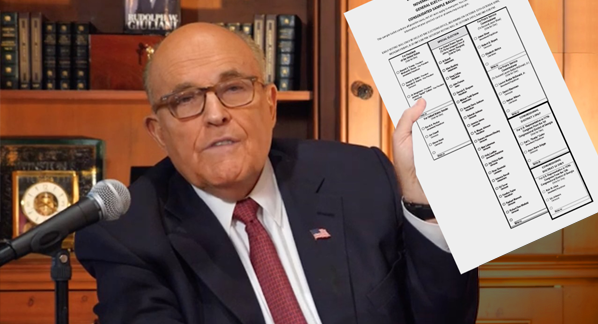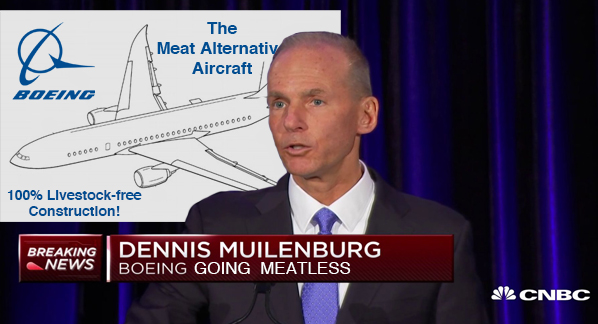(SatireWire.com) — Americans are furious over the inept rollout of Obamacare, but landmark legislation has a history of early backfires. Even the Emancipation Proclamation stuttered, initially succeeding only in emancipating a horse and a couple of chickens.
1863 Emancipation Proclamation — “Abe-olition”
- Republican President Abraham Lincoln’s executive order freed an estimated 3.1 million slaves in the Confederacy which, according to his Democratic opponents, made it the “biggest jobs-killing government program of all time.” Lincoln’s initial response to the criticism — “Well, I think that’s the point” — certainly didn’t do him any favors with free-market Democrats.

Opposition Democrats insisted slaves would rather free themselves than depend on government-sponsored freedom. - Thanks to printing “glitches,” the Proclamation freed Southern slaves but inadvertently required free Northern blacks to choose a master within six months or pay a fine.
- Initially, the law stated that those laboring less than 30 hours a week were considered part-time slaves and therefore were eligible only for part-time freedom, prompting hundreds of plantation owners to reduce slave work-hours to avoid having to provide full-time freedom. This provision was later removed, although plantations owning 50 or fewer slaves were exempt for the first year.
- Similar to the Obamacare launch, not everyone eligible for Abe-olition was able to obtain it. Then-Secretary of Newly Designated Humans Services, Cathcart Theopholis, blamed the Confederacy, but later admitted the administration’s early test runs had succeeded only in emancipating a horse and a couple of chickens.
- Unfriendly news outlets like the New York Sun purposely muddied the waters by reporting that Lincoln was not offering to free the slaves, but was offering free slaves. The President quickly quashed the rumor, which lost him the support of New Englanders, a remarkably hardy and penurious people who detested slavery but hated missing out on a deal even more.
1883 Pendleton Act — “Chester Arthronage”
- Signed by Republican President Chester Arthur, the Pendleton Act declared that government jobs should be awarded, not as patronage, but based solely on merit. Democrats in Congress, 56 percent of whom said they had never heard of Chester Arthur, nonetheless opposed the law, calling it the, “biggest people-doing-lousy-jobs-killing government program of all time.”
- Despite the obvious advantages of awarding government positions only to highly qualified individuals, the law has never been applied.
1890 Sherman Antitrust Act — “Benjamin Harrisocialism”
- The Sherman Antitrust Act, signed by Republican President Benjamin Harrison, was the first U.S. law to take on big business by banning anticompetitive practices and limiting cartels and monopolies. A grass-roots group of everyday mining tycoons and railroad magnates immediately worked to repeal the law, which they said would be hardest on the working poor, and shot as many as 200 workers a day to prove it.
- Democratic opponents called the Act the “biggest dangerous-and-low-paying-jobs-killing government program of all time.”
- In a heroic speech, Democratic Sen. John Kenna of West Virginia filibustered the bill for 24 hours while seated in a bathtub full of clean, sweet-smelling Standard Oil.
- Not unlike the pace of Obamacare, it was 10 years before the Act was actually enforced, but eventually it was, which is why companies like Microsoft, Google, Comcast and JP Morgan Chase don’t exist today.
1906 Federal Meat Inspection Act — “Teddy Roosevegetarianism”
- The Federal Meat Inspection Act, signed by Republican President Teddy Roosevelt, ensured that animals were slaughtered and processed under sanitary conditions and required meat to be correctly labeled. Democratic opponents called it the “biggest disgusting-jobs-killing government program of all time.”
 Rep. Bibble’s famous “Meat hook filibuster”
Rep. Bibble’s famous “Meat hook filibuster”
- The Act provoked riots as the public feared the law would drive up meat prices. The protests were quelled after producers assured them that they hadn’t been selling genuine meat since 1861.
- In a heroic speech dangling above the House floor, Rep. Winston Bibble, (D-OH), filibustered the bill for 36 hours while hanging from a meat hook. He stopped only after Republicans voted to put a bolt through his head. Bibble’s body was labeled as pork and served in the House cafeteria.
- Americans were so horrified by bloody slaughterhouse depictions in Upton Sinclair’s “The Jungle” – the novel that inspired the law — that it was several months before they could muster the energy to slaughter another Native American tribe.
The 19th Amendment, 1920 — “Woodrow Wilsuffrage”
- Signed by Democratic President Woodrow Wilson, the 19th Amendment to the U.S. Constitution said the right of citizens to vote could not be “denied or abridged on account of sex.” Despite the chauvinism of the time, the amendment was surprisingly popular among men, primarily because Wilson told them the law meant only women who had sex with them could vote.
- In the backlash that followed, Republicans in the House of Representatives threatened to repeal the amendment until their wives asked if they’d like to be known ever after as “The Blue Ball Congress.” The threats were rescinded.
- Thanks to female participation, 8 million more votes were cast in the election of 1920 than in 1916. Polling places were overwhelmed and ill equipped to handle the stress. The New York Plutocrat wrote: “The curtains around the voting both do not reach to the floor, enabling all and sundry to observe, unobstructed, the ankles of the lady voters. For shame!”
1935 Social Security Act — “FDRfare”
- Providing a safety net for older and unemployed Americans, the Social Security Act, signed during the Great Depression by Democrat Franklin D. Roosevelt, was blasted by Republican opponents as the “biggest no-one-has-a-job-but-if-they-did-this-would-kill-them-jobs-killing government program of all time.”
- Like Obamacare, the administration was taken by surprise by the program’s popularity, explaining that the eligibility age was set at 65 because they assumed people that age were already dead. Officials were left with egg on their faces, which only further angered the public, which wondered how the hell they could afford eggs in this economy.
- Republicans opposed to big government voted to repeal the law 42 times before they realized older people tend to vote conservative and would swell their popularity. The paradox is remembered in a heroic speech on the House floor by Rep. Eldridge Harp, (R-MI), who filibustered himself for 48 hours until starving elderly spectators in the gallery ate him.
Copyright © 2013, SatireWire.com





